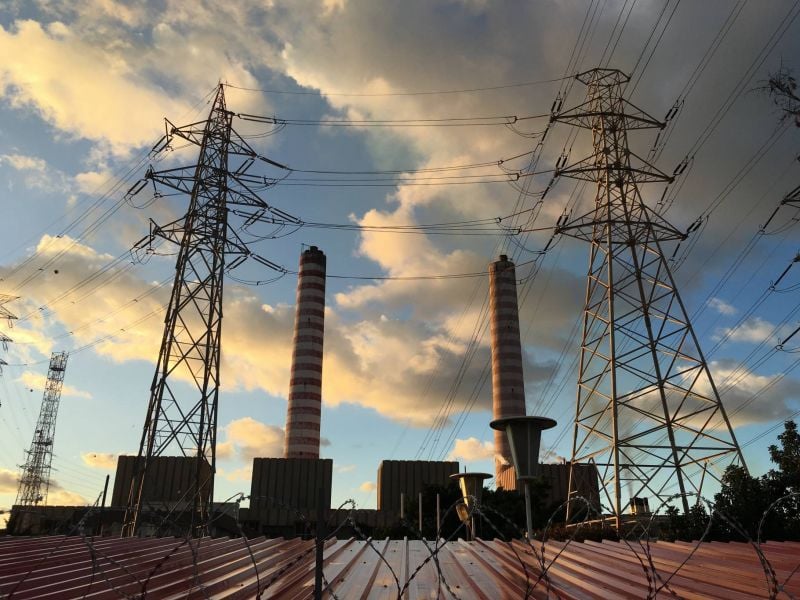
With the latest setback, Lebanon’s electricity grid is even less reliable. (Credit: Philippe Hage Boutros/OLJ)
BEIRUT — Lebanon’s electrical grid is the newest target in a trend of metal thefts that officials believe are being carried out by residents rendered desperate by the country’s grave economic crisis.
The most recent casualty? A 55-meter pylon in the mountainous Hermel region that connects the Bekaa to the northern Deir Ammar power plant, one of the four major plants supplying electricity throughout the country. After its metal supports had been stolen, the pylon was no match for high winds that blew across Lebanon Tuesday.
“Power evacuation” — the transfer of electricity from the plant to the grid — “from Deir Ammar is not currently possible through the Bekaa. It will only be possible through the coastal line and Mount Lebanon,” Ramzi Dbaissy, the head of high-voltage transmission networks at Électricité du Liban, Lebanon’s public utility, told L’Orient Today.
The 220-kilovolt transmission line, located between Deir Nbouh and Baalbeck, ensures the power system’s stability, he said.
Now that it’s offline, Dbaissy said the electrical network is unstable and the connection has been weakened between the power plants in Deir Ammar and southern Zahrani, another of the four major plants.
Dbaissy said recently intensified blackouts were not due to the pylon’s collapse, however. While he was not aware of the reason, media reports suggested a potential link to fuel shortages. Other officials at EDL were not available for comment.
The Bekaa, along with other nearby regions, is currently being supplied with power through the Zahrani power grid and Deir Ammar’s coastal transmission line, which spreads from Mount Lebanon to Aramoun and then to the Bekaa Valley.
A team of engineers will be dispatched to the site to assess the damage as soon as weather conditions permit before contracting a company for repairs.
“This will not be a short process,” Dbaissy said, without giving any specific timeline.
The incident lays plain the power grid’s susceptibility to the upward tick in metal thefts recently witnessed throughout the country. The thefts have taken place amid soaring unemployment and a dollar shortage that has caused the lira to lose some 90 percent of its value while the prices of basic goods and commodities skyrocket.
“It’s metal,” Dbaissy pointed out. “They’re stealing manhole covers to sell as well,” he said, referring to a recent spike in the theft of the covers in the Lebanese capital. Beirut Gov. Marwan Abboud told AFP last month that he attributed the rise to the fact that manhole covers “are made out of cast iron, which has become much more expensive.”
The covers weigh up to 60 kilograms and can fetch up to $100 when sold for scrap. At the current black market rate, this is equivalent to some LL1.3 million, or more than double the current monthly minimum wage.
Although the damage to the pylon Monday is not expected to lead to significant power outages for residents, Dbaissy warned that other towers are also at risk of collapse after their support crossings were stolen, and that additional incidents could affect power supply.
Some 4,000 pylons are scattered across Lebanon, according to Dbaissy, who called on authorities to track down those committing the thefts to avoid further damage.
“The danger is the same thing happening in other places,” he said. “If it does, there’ll be a nationwide blackout.”